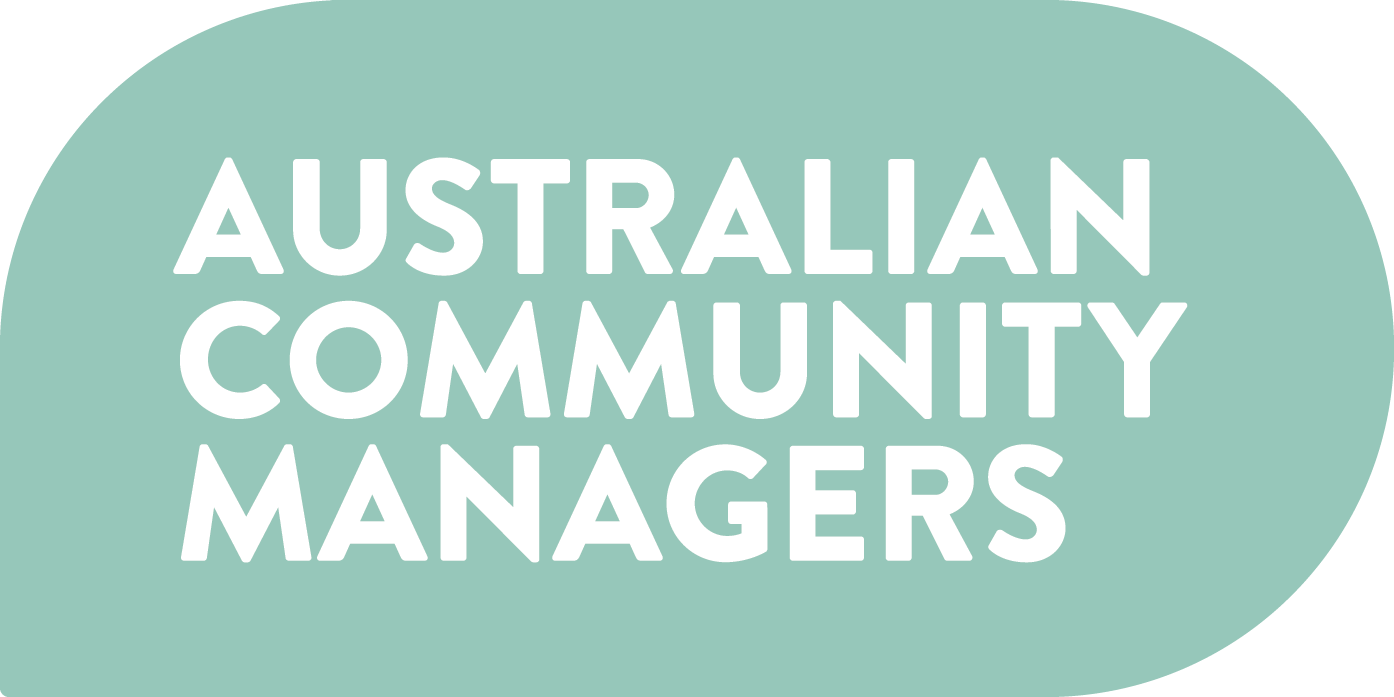Creating kind spaces: much more than ‘nice’
At the 2024 All Things in Moderation conference, Patrick Boehler, a civic media specialist with extensive experience in politically volatile regions, led a compelling session on creating kind spaces in online communities. For the community manager, kindness is not a superficial add-on, but a deliberate strategy that, when done right, nurtures healthier, more resilient online communities.
Kindness as a Strategic Imperative
Civic media specialist Patrick Boehler spoke at ACM’s 2024 All Things in Moderation conference.
A foundation of kindness fosters greater resilience, allowing communities to recover more quickly from disputes or external disruptions.
Boehler opened with a powerful reminder that kindness, while often dismissed as a ‘soft skill,’ is foundational to sustainable community health. Communities that prioritise kindness see benefits beyond surface-level pleasantries. Boehler’s work in countries like Russia and Afghanistan, where media and public discourse are often heavily restricted, demonstrates that even in the most hostile environments, kindness can shape how members engage and interact.
For advanced community managers, this means shifting the focus away from viewing kindness as merely conflict avoidance. Instead, kindness becomes a strategic imperative that leads to:
Stronger community retention: When members feel safe and valued, they remain more loyal and active.
Increased trust and safety: Trust isn’t just built between members, but also between members and moderators—essential for navigating conflict or sensitive discussions.
Resilient communities: A foundation of kindness fosters greater resilience, allowing communities to recover more quickly from disputes or external disruptions.
Insight: Kindness is not about avoiding difficult conversations; it’s about creating a space where even challenging topics can be discussed with respect and empathy.
Rethinking Kindness: More Than Just ‘Being Nice’
Kindness includes enforcing tough boundaries and providing space for marginalised voices—not just avoiding conflict.
A recurring theme in Boehler’s talk was the idea that kindness is often misunderstood as synonymous with being agreeable or avoiding conflict. In fact, kindness in communities often requires firm boundaries, hard conversations, and clear consequences for harmful behaviour. In his experience, creating a kind space means acknowledging and addressing negativity in ways that align with the community’s values.
Boehler’s reframing of kindness:
Boundary-setting as kindness: Establishing and enforcing clear boundaries is one of the kindest actions a community manager can take. It sets expectations and prevents harmful behaviour from taking root.
Accountability with empathy: When moderating difficult situations, Boehler stressed the importance of approaching conflict with compassion, but without letting harmful actions slide. Constructive correction, rather than public shaming, is key.
Amplifying underrepresented voices: Part of creating a kind space means ensuring all voices have an opportunity to be heard, particularly those that may be drowned out by louder or more dominant members. Proactively inviting diverse contributions helps create a more inclusive and kind environment.
Insight: Kindness includes enforcing tough boundaries and providing space for marginalised voices—not just avoiding conflict.
Tactical Approaches to Building Kind Spaces
The design of your platform and the way content is surfaced directly influences whether conversations will turn toxic or stay constructive.
Boehler’s experience with international news organisations, including Radio Free Europe and the South China Morning Post, gave him a unique perspective on the intersection of technology and kindness. His presentation offered tactical approaches that community managers can employ to create and sustain kind environments, using both technical design and editorial choices.
Key technical strategies:
User verification systems: One of the most powerful ways to discourage trolling and enhance accountability is through user verification. By implementing layers of verification, you increase the emotional and social cost of negative behaviour. Boehler also highlighted the potential of decentralised systems like the Fediverse, where mutual recognition between groups enhances trust without requiring invasive identity checks. It’s important to note that verification doesn’t mean abandoning psudemonymity, which is an important psychological safety feature for many online communities.
Designing intentional interaction paths: How you structure interactions within your platform impacts how conversations unfold. Boehler shared the example of Swissinfo, where discussions were designed to start with questions, encouraging curiosity over confrontation. Limiting the number of replies to two layers helped prevent discussions from spiralling into toxic rabbit holes.
Content ranking by relevance, not just engagement: Avoid the trap of rage-baiting or prioritising highly engaging but divisive content. Instead, design algorithms to surface content based on non-engagement signals, such as user feedback on relevance or quality. This encourages more meaningful interactions. Australian Community Managers can use the national Code of Ethics for CMs as a conversational tool with managers who may pressure them toward these tactics.
Insight: The design of your platform and the way content is surfaced directly influences whether conversations will turn toxic or stay constructive.
Key editorial strategies:
Framing discussions with questions: Boehler emphasised the power of asking questions, both in journalism and community management. Leading with questions encourages curiosity, empathy, and collaboration rather than confrontation. When discussions are structured around questions rather than declarative statements, members are more likely to engage constructively than ‘take sides’.
Limiting reactions to positive interactions: In a world where online platforms are often designed for maximum engagement (both positive and negative), Boehler advocates for limiting reactions to only positive options, such as commenting or liking. At Swissinfo, the simple decision to remove “dislike” buttons helped create a more constructive dialogue, where members could express agreement but not dissent through a single click. Disagreement could still be expressed, but demanded more thoughtful effort.
Encouraging curiosity and empathy: Starting conversations with questions fosters an atmosphere of curiosity, which leads to increased empathy between members. This is especially important in politically charged or polarised spaces, where the goal is often to move beyond simple agreement or disagreement into nuanced, thoughtful engagement.
Insight: Curiosity, not confrontation, should be the driver of your community’s discussions.
Overcoming Challenges: Building Kindness Amidst Resistance
While the benefits of kind spaces are clear, Boehler acknowledged that creating these environments can be difficult, especially for long-established communities or those facing external pressures.
Key challenges:
Resistance from long-term members: Changing the culture of a well-established community can be met with resistance, particularly from members who are used to less stringent moderation or more divisive interactions as social norms. To overcome this, Boehler recommends setting clear expectations early and consistently modelling the behaviour you want to see.
Community manager burnout: Moderating with kindness requires emotional labour, which can quickly lead to burnout if teams aren’t adequately supported. Boehler believes providing mental health resources and ensuring reasonable workloads for moderators are critical to long-term success - something ACM has long advocated for.
External threats: Whether it’s trolls, bad actors, or even regulatory constraints, there will always be external forces working against the cultivation of kind spaces. However, strategic use of both technical tools and community guidelines can mitigate many of these risks, and is essential grassroots stewardship - often more effective than top-down regulatory interventions.
Insight: Kind spaces don’t happen overnight—they require continuous effort, patience, and a strong commitment to community values.
Kindness as a Long-Term Investment
Kindness is not about avoiding difficult moments—it’s about creating spaces where difficult conversations can happen productively.
The session concluded with a reflection on the nature of community-building as a long-term investment. Boehler pointed out that kindness is not a quick fix, but a culture that takes time to cultivate and sustain. For community managers, the challenge is often balancing immediate needs with long-term goals—but the rewards are significant.
Communities built on kindness are more resilient to conflict, more welcoming to diverse voices, and more likely to thrive in the long run. For those leading established communities, the message was clear: Kindness should be seen as a strategic choice, not just a reactive solution.
Insight: Kindness is not about avoiding difficult moments—it’s about creating spaces where difficult conversations can happen productively.
By rethinking kindness as an active and strategic part of community management, we can transform our online spaces into environments where trust, empathy, and meaningful engagement flourish. What steps can you take today to bring more kindness into your community?
Follow Patrick’s work at www.pboehler.net
All Things in Moderation ran online 16-17 May 2024 and featured over 25 expert contributors from around the world and across practitioner, academic and policy disciplines.



